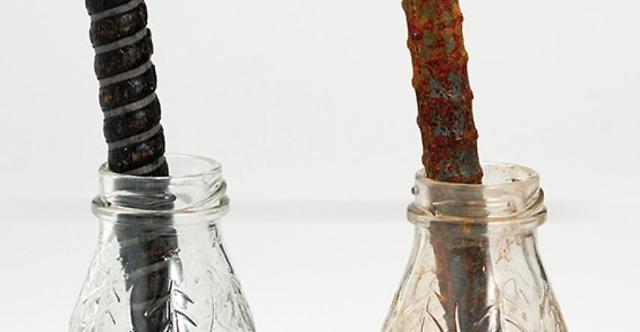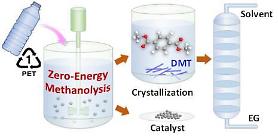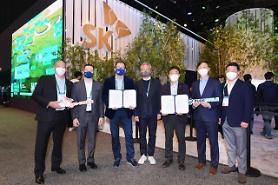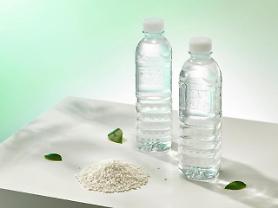
[Courtesy of SK ecoplant]
GFRP was used as an alternative material to the reinforcement bar (rebar), a steel bar or mesh of steel wires used as a tension device in reinforced concrete and reinforced masonry structures. GFRP has characteristics of lightweight, no-corrosion, superior tensile strength, and high mechanical performance.
SK ecoplant said it would jointly invest in establishing a production line for GFRP rebars brand-named "KEco-bar" with KCMT and Carbon Fiber & Young. The joint plant is to secure 40,000 tons of production capacity per year by 2024 and 200,000 tons by 2027. The size of investments was not disclosed.
About 300 million PET bottles can be recycled to produce 200,000 tons of GFRP rebars annually, SK ecoplant said. PET is the most common thermoplastic polymer resin used in the creation of fabrics and plastic bottles. Recycled PET bottles have been used to manufacture clothes, bags and shoes.
"KEco-bar is a breakthrough technology that can increase the resource circulation rate of PET bottles because it is not limited to colors due to the nature of construction materials," Jo Jung-shik, head of SK ecolplant's eco-solution business unit, said in a statement on April 20.
The production of high-quality GFRP rebars has not been easy in South Korea due to high prices, with imported products used in special processes. SK ecolplant and its partners have completed a joint patent application for a technology that uses recycled PET bottles and produces a key raw material for the production of GFRP rebars.
Carbon Fiber & Young, an eco-friendly resin research company in South Korea, has developed a thermosetting resin for GFRP rebars. PET chips were reacted with a glycosidic solution to produce the unsaturated polyester resin that removed styrene monomer, a toxic industrial chemical and important raw material for making a range of plastics and synthetic rubbers.
Copyright ⓒ Aju Press All rights reserved.



